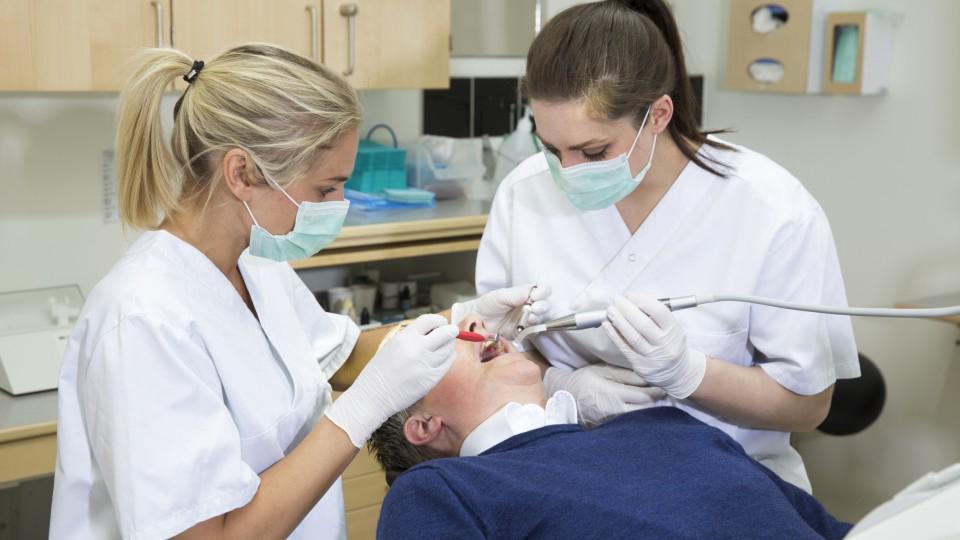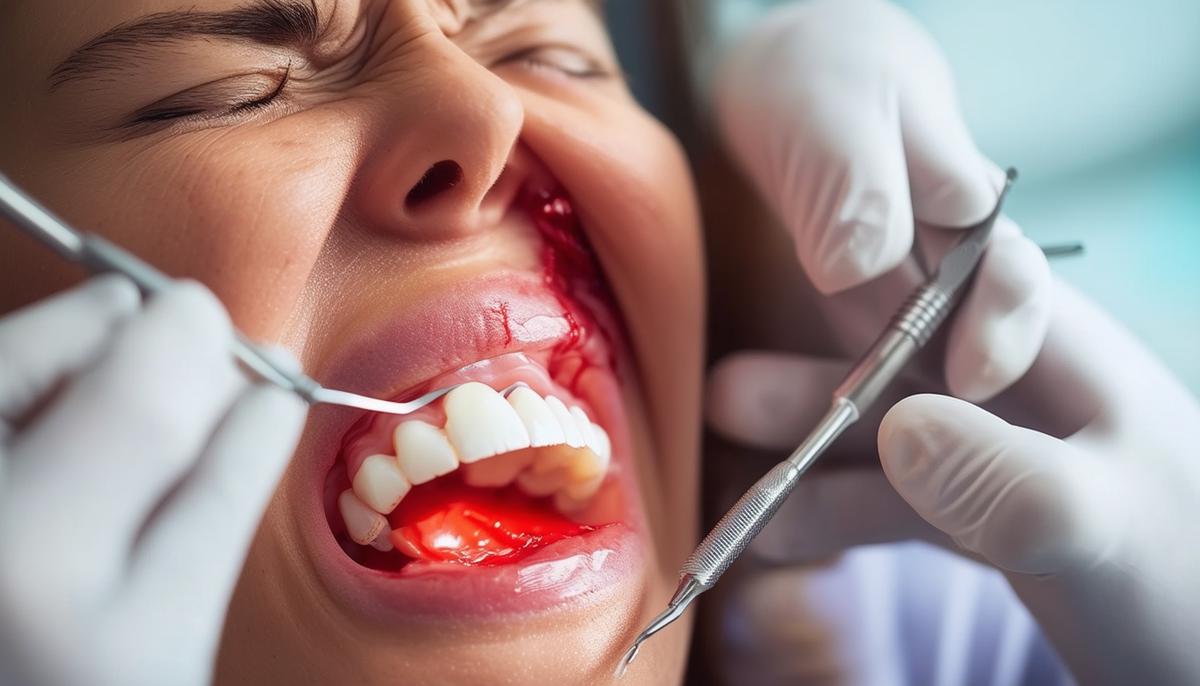What is an NHS dentist?
An NHS dentist provides dental care funded by the UK National Health Service, focusing on essential treatments necessary for maintaining good oral health rather than aesthetic enhancements. The range of treatments under NHS care often includes:
- Examinations
- Diagnoses
- Fillings
- Extractions
- Preventive services such as scaling or applying fluoride varnishes
These are categorized into bands, with associated costs dictated by the complexity and type of treatment required.
In contrast, private dental services offer treatments that are not covered by the NHS, such as advanced cosmetic dentistry, alongside quicker access and longer appointments. Patients choosing private care should discuss costs openly with their dentist, as fees can significantly vary depending on the treatment and practice.

How to find an NHS dentist?
To locate an NHS dentist, visit the NHS website and use the 'Find a dentist' search tool. Input your postcode, town, or city to find local dental practices within your area. The results will provide important information such as the dentist's contact details, operating hours, and whether the practice is currently accepting new NHS patients.
As the data on the website is regularly updated, it is generally reliable; however, because practices may change their status between updates, it is prudent to contact them directly. This direct interaction confirms their current patient intake status and allows you to inquire about waiting lists and potentially register for a future opening if they are not currently taking new patients.
Should you encounter outdated information during your search, inform the practice so they can update their details on the NHS tool. This ensures the accuracy and usefulness of the database for future users seeking similar information.
Some practices might require you to fill a registration form on your first visit to document your details in their records. However, filling out this form does not guarantee ongoing access to appointments in the future. Future engagements would still necessitate prior verifications about available appointments each time you seek dental services.
If you find it challenging to register with a practice near you, consider extending your search to areas slightly beyond your immediate locality, such as near where you work or study, which could offer feasible alternatives and possibly shorter waiting lists.
What are NHS dental charges?
NHS dental charges are classified into distinct bands that reflect the type of treatments provided:
- Band 1 (£23.80): Covers initial examination, diagnosis, advice, X-rays (if necessary), scale and polish (if clinically necessary), and preventive care such as fluoride varnish or fissure sealant application.
- Band 2 (£65.20): Includes services provided under Band 1, plus further treatment such as fillings, root canal treatment, and extractions.
- Band 3 (£282.80): Covers all treatments listed in Bands 1 and 2, plus more complex procedures such as crowns, dentures, and bridges.
Certain groups are exempt from these charges, ensuring that dental care remains accessible to those who might otherwise not afford it. Exemptions are given to:
- Individuals under 18
- Those under 19 and in full-time education
- Pregnant women or those who have given birth in the past 12 months
- Those receiving specific government benefits
To claim an exemption, one must provide proof such as a relevant award letter for specified benefits or an exemption certificate. Failing to show the appropriate proof may require the patient to pay for the treatment, although this could be refunded once correct proofs are submitted.
For those who don't qualify for full exemption but meet specific income criteria, a partial help scheme (HC3 certificate) may reduce the cost of NHS dental treatment. These assessments are based on a thorough evaluation of one's financial circumstances.
How to register with an NHS dentist?
When attempting to register with an NHS dentist, one must typically initiate contact by reaching out directly to the desired practice. During this initial interaction, you are likely to be invited to complete a registration form. This form primarily serves administrative purposes, intended to capture your essential personal details and medical history, crucial for your dental care management.
Completing a registration form at an NHS dental practice doesn't equate to a long-term commitment from the dentist to provide ongoing treatment. Rather, registration simply adds your details to the practice's patient database. Each subsequent need for a dental appointment will require contacting the practice to confirm an available slot, as not all surgeries will have the capacity to offer immediate appointments, especially for non-urgent care.
Discuss with the dental office how they prefer their patients to book future appointments. Some practices might suggest booking your next check-up upon completion of treatment, particularly if they observe a high demand for their services. Adhering to these suggested intervals helps in maintaining your dental health and in securing slots that accommodate your schedule.
Stay informed about the practice's policies regarding appointment cancellations and missed consultations. Understanding these rules helps handle situations where you might need to reschedule, ensuring that you maintain good standing with the practice.
What to do in a dental emergency?
In the event of a dental emergency, immediate action and knowing whom to contact are crucial. A dental emergency might consist of:
- Severe pain
- Significant bleeding from the mouth
- A tooth being knocked out
These situations require urgent care to either save a tooth, halt ongoing tissue bleeding, or address severe infections.
For urgent dental care, initial contact should be made with your registered dental practice. Many dental clinics offer provisions for emergency appointments or have specific advice for their registered patients after working hours. Calling your dentist allows for immediate expert advice customized to your dental history.
If your dental practice cannot accommodate an emergency appointment or if this occurs outside normal office hours, NHS 111 provides an essential service. By dialing 111, you can access 24-hour advice on where to receive the nearest emergency dental care. NHS 111 can help you find an urgent dental service and will explain what to do, which includes visiting an emergency dentist who's prepared to handle severe cases.
In instances where there is extreme trauma, such as injuries to the face or mouth, severe swellings affecting breathing or swallowing, or uncontrollable bleeding, visiting the Accident and Emergency (A&E) department at your local hospital is necessary. The A&E departments are equipped to handle severe health crises, but it is vital to reserve this option for truly severe instances to prevent overwhelming medical services that are in demand for life-threatening conditions.
Ensure that you keep your dentist's contact information readily available at all times and familiarize yourself with the emergency protocols advised by your dental office. Preparing this information in advance could notably lessen stress during potentially intense and chaotic situations.

How to complain if you can't find an NHS dentist?
If, after diligent efforts, you find yourself unable to secure an NHS dental appointment, it's essential to know the appropriate steps for lodging a formal complaint. This process ensures that grievances regarding accessibility to dental services are formally acknowledged and appropriately addressed.
- Begin by contacting the local integrated care board (ICB), which oversees NHS dental services in your area. Explain your difficulty in securing an appointment, providing specifics like the duration of your search and the number of practices contacted. This can be done via phone or email, using the contact details provided on the NHS website.
- Should the response from the ICB not resolve your concerns, or if you are unsatisfied with the handling of your issue, it is within your rights to escalate the matter further. You can do this by submitting a complaint to the Parliamentary and Health Service Ombudsman. This service is free and independent of the NHS and has authority to make final decisions on unresolved complaints. Information on how to make a complaint is available on their official website. Be prepared to provide a detailed account of your complaint, along with any correspondence or replies you have received from the ICB.
- Local Healthwatch organizations offer guidance and support through the complaints process. They can provide detailed information about local services and may assist in identifying potential solutions to your challenges. Finding contact information for your local Healthwatch is straightforward with a quick search online, or it can be found through community centers or your local library.
Remember, a complaint seeks to resolve your personal issue and serves as valuable feedback that can drive improvements in NHS dental services for others in similar situations. Always ensure that any communications during this process are conveyed constructively and accompanied by relevant documentation for reference. This systematic approach will maximize the efficiency of handling your complaint and aid in bringing about potential positive changes in the provision of NHS dental care.

Writio: The AI content writer revolutionizing web publishing. This article was crafted by Writio.
- NHS. How to find an NHS dentist. NHS. https://www.nhs.uk/nhs-services/dentists/how-to-find-an-nhs-dentist/.
- NHS. Understanding NHS dental charges. NHS. https://www.nhs.uk/nhs-services/dentists/dental-costs/understanding-nhs-dental-charges/.
- NHS. Dental emergency and out-of-hours care. NHS. https://www.nhs.uk/nhs-services/dentists/dental-emergency-and-out-of-hours-care/.
Leave a Reply